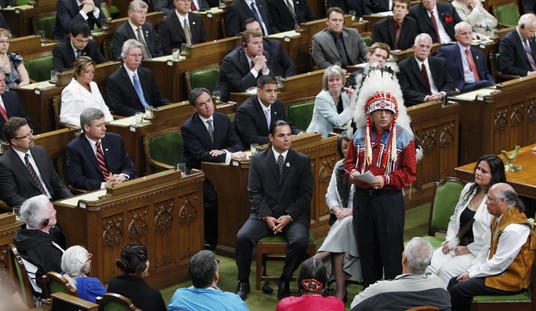The Chicago Tribune says, “President-elect Barack Obama would like to nominate former top Justice Department official Eric Holder Jr. to be his attorney general, and his transition team is now trying to gauge whether there is sufficient bipartisan support for him in the Senate, sources close to the transition confirmed Tuesday. … Holder, a well-regarded prosecutor turned corporate lawyer in private practice, would be the nation’s first African-American attorney general. He did not respond to calls and e-mails seeking comment, and Obama’s transition team declined to discuss the matter, except to say that he had neither been offered the job nor accepted it. ”
Holder is no stranger to the Justice Department and no stranger to being noncommittal. Wikipedia notes that Holder played an interesting part in pardoning fugitive from justice Marc Rich.
In his final days with the Clinton administration, Holder was swept into the controversy surrounding President Clinton’s last-minute pardon of fugitive and Democratic contributor Marc Rich. Between November 2000 and January 2001 Jack Quinn, Rich’s lawyer and former White House Counsel from 1995-96, had been contacting Holder, testing the waters for the political viability of a presidential pardon. After presenting his case to Holder in a November phone call and a last minute January 17th letter, Quinn arranged a phone call between the White House and Holder, asking the Deputy Attorney General to share his opinion on the Rich pardon. Ultimately, Holder gave a “neutral, leaning towards favorable” opinion of the pardon to Clinton.
During his February testimonies before the House Government Reform Committee and Senate Judiciary Committee, Holder argued his phone call was not intended as a formal Justice Department blessing of the pardon, saying, “my interaction with the White House, I did not view as a recommendation. Because… I didn’t have the ability to look at all the materials that had been vetted through the way we normally vet materials.” He also did not believe his opinion would be interpreted as a go-ahead for the pardon. “What I said to the White House counsel ultimately was that I was neutral on this because I didn’t have a factual basis to make a determination as to whether or not Mr. Quinn’s contentions were in fact accurate, whether or not there had been a change in the law, a change in the applicable Justice Department regulations, and whether or not that was something that would justify the extraordinary grant of a pardon.” An investigation championed by House Government Reform Committee chairman Rep. Dan Burton concluded, in a 2003 report covering 177 Clinton pardons, that Holder had played a significant role in facilitating the Rich pardon, first by recommending the well-connected Jack Quinn to Marc Rich legal representatives, and by eventually delivering a favorable opinion of the twilight pardon to the President from a position of authority.
For those who’ve forgotten Marc Rich, here’s a thumbnail sketch of the Clinton pardon affair, which incidentally illustrates the interlocking set of relationships that bind the very highest ranks of Washington society.
In 1983 Rich and partner Pincus Green were indicted by U.S. Attorney and future mayor of New York City Rudolph Giuliani, on charges of tax evasion and illegal trading with Iran. They were indicted while they were in Switzerland. The pair failed to return to the U.S. following the indictment, and were on the FBI’s Most Wanted List for many years.
On January 20, 2001, hours before leaving office, President Bill Clinton granted Rich a presidential pardon. Since Rich’s former wife and mother of his three children, socialite Denise Rich, had made large donations to the Democratic Party and the Clinton Library during Clinton’s time in office, Clinton’s critics alleged that Rich’s pardon had been bought. Rich had also made substantial donations to Israeli charitable foundations. Clinton explained his decision by noting that similar situations were settled in civil, not criminal court, and cited clemency pleas from Israeli government officials, including Prime Minister Ehud Barak. Federal Prosecutor Mary Jo White was appointed to investigate. She stepped down before the investigation was finished and was replaced by James Comey. Though Comey was critical of Clinton’s pardons, he could not find any grounds on which to indict him.
During hearings after Rich’s pardon, Lewis “Scooter” Libby, who had represented Rich from 1985 until the spring of 2000, denied that Rich had violated the tax laws but criticized him for trading with Iran at a time when that country was holding U.S. hostages. In his letter to the New York Times, Bill Clinton explained why he pardoned Rich, noting that U.S. tax professors Bernard Wolfman of Harvard Law School and Martin Ginsburg of Georgetown University Law Center concluded that no crime was committed, and that the companies’ tax reporting position was reasonable. In the same letter Clinton listed Libby as one of three “distinguished Republican lawyers” who supported Rich’s pardon. His pardon was curiously supported also by the king of Spain, Juan Carlos I. Speculation about another rationale for Rich’s pardon involves his alleged involvement with the Israeli Intelligence community.
[youtube fvl4Qk-o0xc]










Join the conversation as a VIP Member